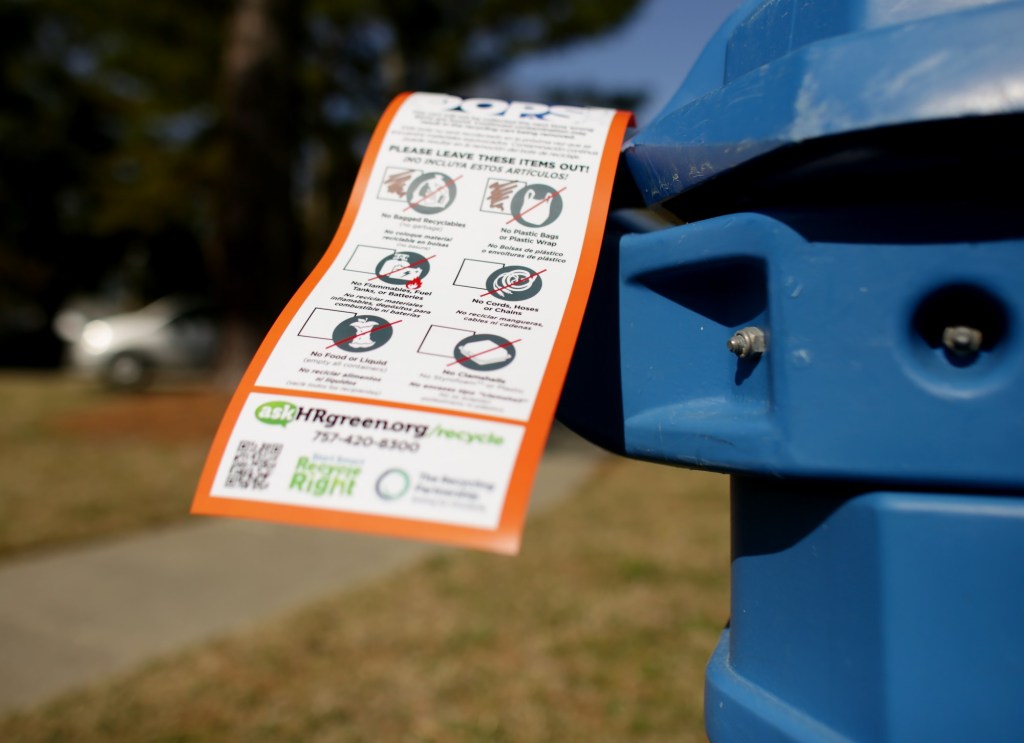A Sudden End to Curbside Recycling Services
Residents across the Greater Williamsburg area are facing an unexpected disruption to their environmental routines as the Virginia Peninsulas Public Service Authority (VPPSA) has terminated its contract with Tidewater Fibre Corp., the region’s primary curbside recycling provider. The decision, finalized on Tuesday, will see services end on September 30, leaving thousands of households without their familiar blue bins and raising critical questions about waste management infrastructure in Virginia’s historic peninsula region.
This abrupt termination affects multiple localities within the VPPSA’s service area, including parts of James City County, York County, and surrounding communities that have relied on Tidewater Fibre’s services for years. The timing couldn’t be more challenging, as communities nationwide are grappling with the evolving economics of recycling and the environmental imperative to reduce waste streams.
Understanding the Virginia Peninsulas Public Service Authority
The VPPSA serves as a regional cooperative that manages waste disposal and recycling services for multiple localities on Virginia’s peninsula. Established to provide cost-effective waste management solutions through economies of scale, the authority has been instrumental in coordinating services across jurisdictional boundaries that might otherwise struggle to provide comprehensive waste management independently.
The authority’s service area encompasses several key communities:
- James City County residential areas
- Portions of York County
- Williamsburg-adjacent neighborhoods
- Various unincorporated communities throughout the peninsula
This regional approach has historically allowed smaller communities to access services that might be financially prohibitive if managed individually, making the current disruption particularly impactful for residents who have few alternative options.
The Broader Context of America’s Recycling Challenges
The termination of Tidewater Fibre’s contract reflects broader challenges facing the recycling industry across the United States. Since China’s implementation of its “National Sword” policy in 2018, which drastically reduced the country’s acceptance of contaminated recyclable materials from abroad, American recycling programs have struggled with economic viability.
Previously, much of America’s recyclable material was shipped to China for processing, but the new restrictions meant that domestic recycling operations had to dramatically improve the quality of sorted materials or find new markets. This shift has forced many recycling companies to raise prices, reduce services, or exit markets entirely.
Economic Pressures on Recycling Services
The economics of recycling have become increasingly challenging for service providers like Tidewater Fibre. Key factors contributing to industry instability include:
- Volatile commodity prices for recycled materials
- Increased contamination rates in curbside collection
- Rising transportation and processing costs
- Limited domestic processing infrastructure
- Stricter quality standards from remaining international buyers
These pressures have led to contract renegotiations, service reductions, and terminations across the country, making the VPPSA situation part of a national trend rather than an isolated incident.
Immediate Impact on Greater Williamsburg Residents
The service termination creates immediate practical challenges for area residents who have incorporated curbside recycling into their weekly routines. Many households will need to quickly adapt their waste management practices, potentially leading to increased landfill waste if alternative recycling options aren’t readily available.
What Residents Can Expect
In the short term, residents should prepare for several changes:
- Collection schedule disruption: The familiar recycling pickup schedule will end on September 30
- Increased household waste: Without curbside recycling, regular trash volumes may increase significantly
- Need for alternative solutions: Residents may need to transport recyclables to drop-off centers
- Potential cost implications: Any replacement service may come with different pricing structures
The transition period is likely to create confusion and inconvenience, particularly for elderly residents or those without reliable transportation to access alternative recycling facilities.
Environmental Implications and Concerns
The service disruption raises significant environmental concerns for a region that has made commitments to sustainability and waste reduction. The Greater Williamsburg area, with its historical significance and tourism industry, has long emphasized environmental stewardship, making the loss of recycling services particularly problematic from both practical and symbolic perspectives.
Potential Environmental Consequences
Without readily available recycling services, the region faces several environmental challenges:
- Increased landfill burden: Materials that were previously recycled may end up in landfills
- Reduced resource recovery: Valuable materials like aluminum, paper, and plastics may be lost from the circular economy
- Carbon footprint concerns: Manufacturing from virgin materials typically requires more energy than recycling
- Community sustainability goals: Local environmental initiatives may be setback
Exploring Alternative Solutions and Future Options
While the immediate situation presents challenges, it also creates opportunities for innovative approaches to waste management and recycling. The VPPSA and local communities are likely exploring various alternatives to maintain recycling services for residents.
Potential Replacement Strategies
Several options may be under consideration:
- New contractor procurement: Seeking alternative private companies to provide curbside service
- Municipal operation: Local governments taking direct control of recycling services
- Regional partnerships: Collaborating with neighboring jurisdictions for shared services
- Hybrid approaches: Combining drop-off centers with limited curbside collection
- Public-private partnerships: Working with local businesses or nonprofits to maintain services
Lessons for Other Communities
The VPPSA situation offers important lessons for other communities nationwide that rely on contracted recycling services. The experience highlights the importance of diversified waste management strategies and the risks associated with dependence on single-provider contracts in an unstable industry.
Communities across America should consider developing contingency plans for recycling service disruptions, including maintaining relationships with multiple potential providers and investing in local recycling infrastructure that provides greater long-term stability.
Key Takeaways
- Service disruption affects thousands: The contract termination impacts multiple communities across the Greater Williamsburg area
- National trend reflection: This situation mirrors recycling industry challenges occurring nationwide since 2018
- Economic factors drive change: Volatile commodity prices and increased operational costs are forcing industry consolidation
- Environmental stakes are high: Loss of recycling services could significantly impact regional waste reduction goals
- Multiple solutions exist: Various alternatives to single-provider contracts could offer greater stability
- Community adaptation required: Residents must prepare for changes to their waste management routines
- Long-term planning essential: Communities need contingency plans for critical service disruptions
As the September 30 deadline approaches, the Greater Williamsburg area faces a critical transition that will test the community’s commitment to environmental stewardship and its ability to adapt to changing service landscapes. The resolution of this challenge may serve as a model for other communities facing similar recycling industry disruptions across the nation.

Born and raised amidst the hustle and bustle of the Big Apple, I’ve witnessed the city’s many exciting phases. When I’m not exploring the city or penning down my thoughts, you can find me sipping on a cup of coffee at my favorite local café, playing chess or planning my next trip. For the last twelve years, I’ve been living in South Williamsburg with my partner Berenike.

